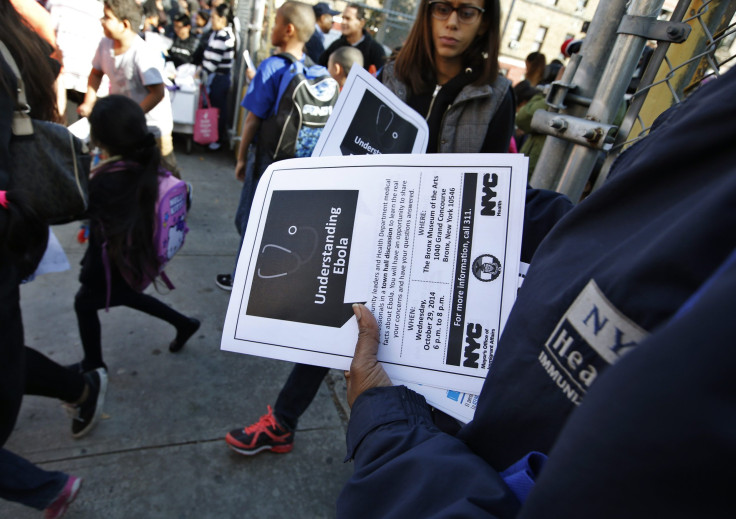US States, Army Stand Firm On Ebola Quarantine Despite CDC's New Guidelines

The U.S. Centers for Disease Control and Prevention, or CDC, on Monday announced new recommendations aimed at building a national standard on the way to handle the Ebola virus, and to keep the public safe without harming efforts to tackle the disease's spread. However, several states and the U.S. Army are not listening.
The CDC has recommended that people who have come into direct contact with the bodily fluids of an Ebola patient should avoid commercial transportation or public gatherings. Quarantine conditions do not necessarily apply to those who have not been in direct contact with infected bodily fluids and have merely been caring for Ebola patients or traveled to West Africa. However, states in the U.S. and the country's army, fearing the virus' spread, have decided to implement their own safeguards, Associated Press, or AP, reported.
Maj. Gen. Darryl Williams, a U.S. Army commander in Italy, said, according to AP, that he and his troops, who were returning from Liberia, would be isolated for 21 days even though they did not show any symptoms of Ebola. The Army's chief of staff, Gen. Ray Odierno, also ordered a 21-day controlled monitoring period before redeploying troops returning from West Africa, an Army spokeswoman said, according to AP.
"The best way to protect us is to stop the epidemic in Africa, and we need those health care workers, so we do not want to put them in a position where it makes it very, very uncomfortable for them to even volunteer to go," Dr. Anthony Fauci, director of the National Institute of Allergy and Infectious Diseases, said, according to AP.
The governors of New York and New Jersey defended their quarantine policies on Monday, which were aimed at isolating people entering the U.S. from Ebola-hit regions. The quarantine was relaxed to an extent after the states announced that suspected Ebola carriers could be isolated in their homes instead of at a medical facility. The states of Illinois, Georgia, Maryland and Minnesota also announced their own quarantine rules on Monday.
Kaci Hickox, a nurse, was released Monday from a quarantine tent in New Jersey, where she had been kept since her return from Sierra Leone, and was allowed to return to her home in Maine. State officials there will decide if she needs to remain under quarantine though Hickox has tested negative for the virus and has showed no symptoms of the disease.
The mandatory quarantines were announced after Craig Spencer, a New York doctor, tested positive for the virus, which has killed nearly 5,000 people and has infected more than 10,000 people so far, mostly in West Africa.
© Copyright IBTimes 2025. All rights reserved.






















